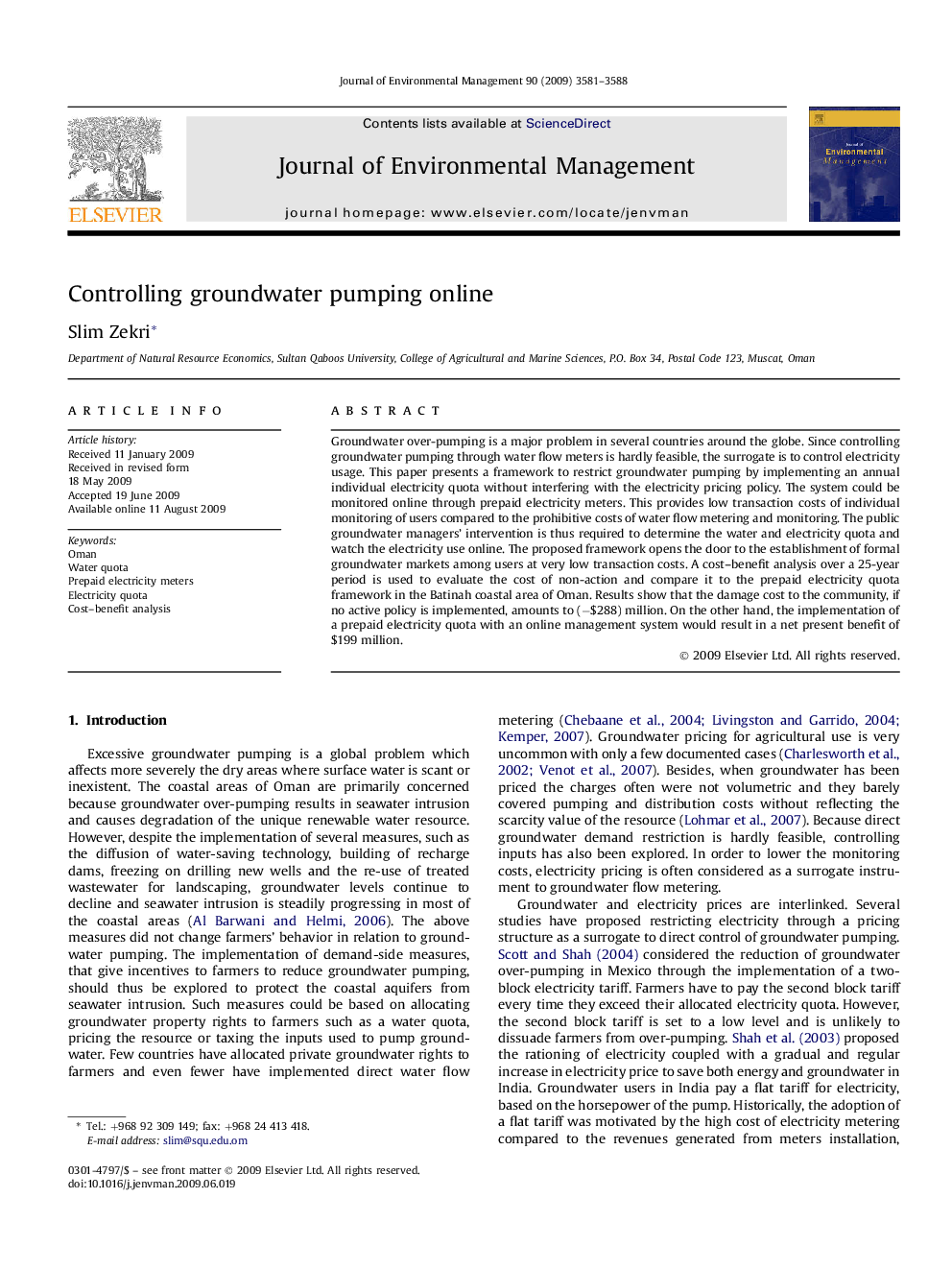| Article ID | Journal | Published Year | Pages | File Type |
|---|---|---|---|---|
| 1058054 | Journal of Environmental Management | 2009 | 8 Pages |
Groundwater over-pumping is a major problem in several countries around the globe. Since controlling groundwater pumping through water flow meters is hardly feasible, the surrogate is to control electricity usage. This paper presents a framework to restrict groundwater pumping by implementing an annual individual electricity quota without interfering with the electricity pricing policy. The system could be monitored online through prepaid electricity meters. This provides low transaction costs of individual monitoring of users compared to the prohibitive costs of water flow metering and monitoring. The public groundwater managers' intervention is thus required to determine the water and electricity quota and watch the electricity use online. The proposed framework opens the door to the establishment of formal groundwater markets among users at very low transaction costs. A cost–benefit analysis over a 25-year period is used to evaluate the cost of non-action and compare it to the prepaid electricity quota framework in the Batinah coastal area of Oman. Results show that the damage cost to the community, if no active policy is implemented, amounts to (−$288) million. On the other hand, the implementation of a prepaid electricity quota with an online management system would result in a net present benefit of $199 million.
